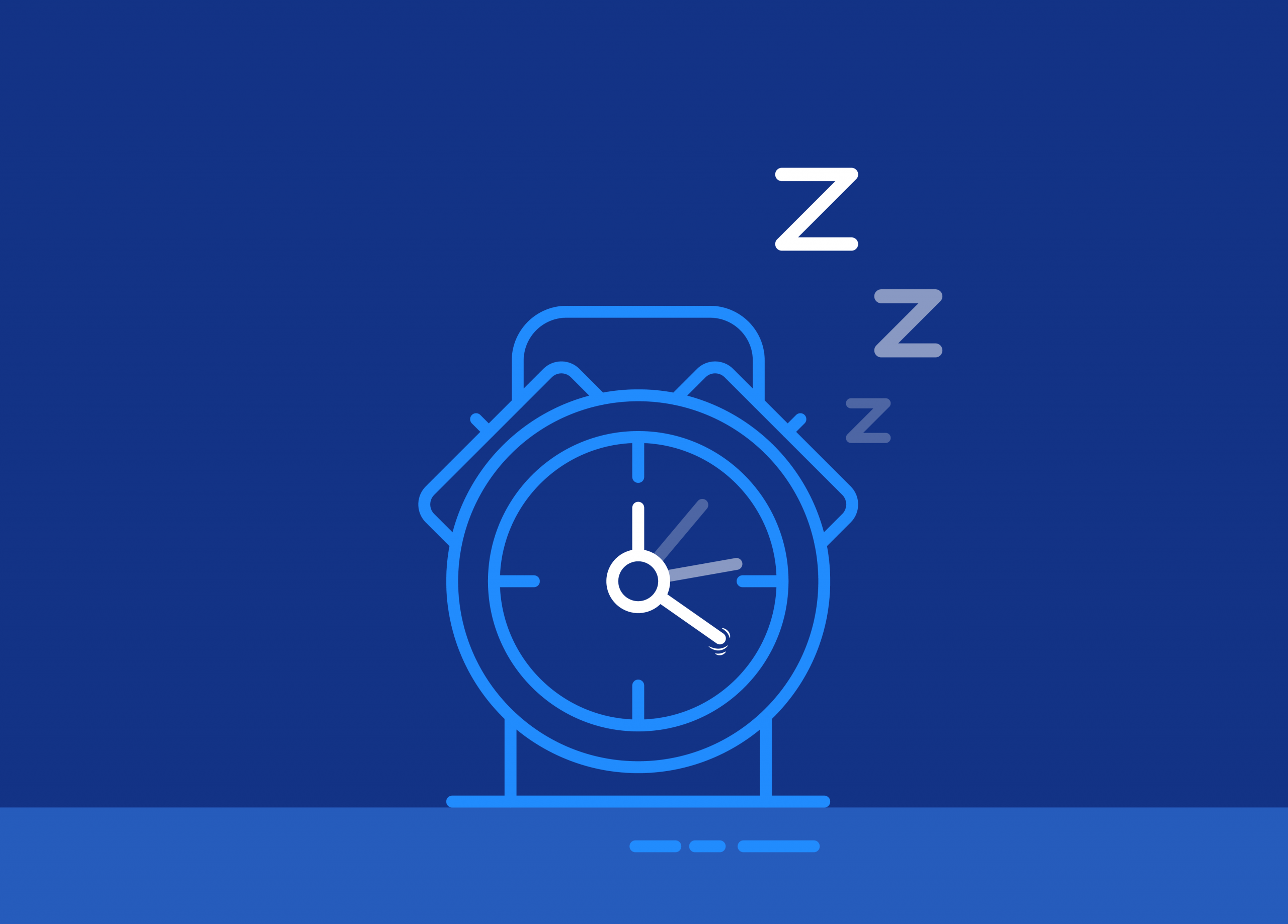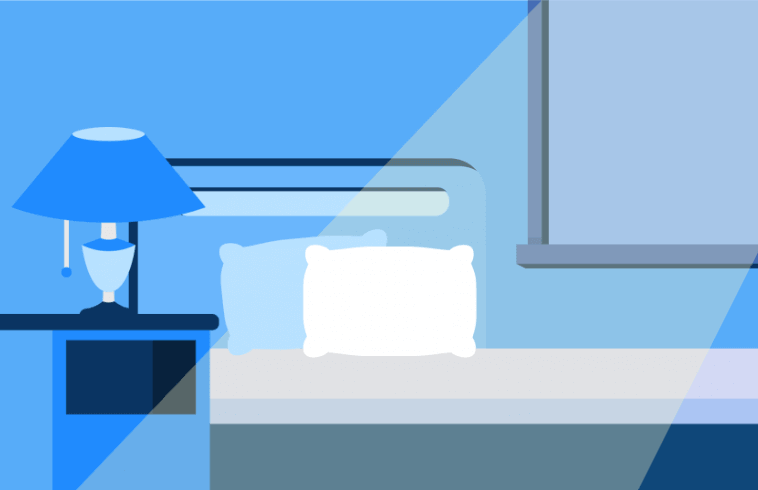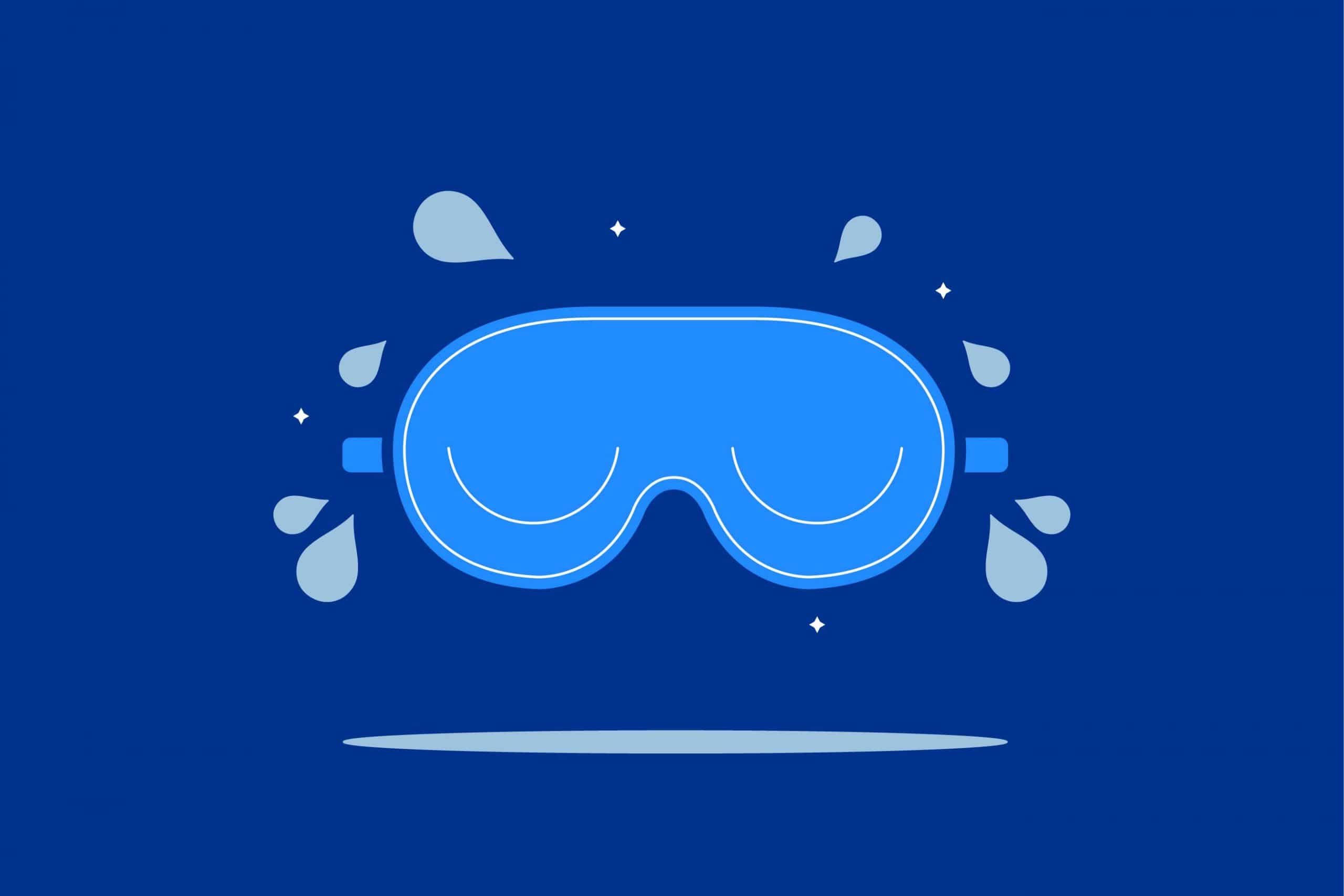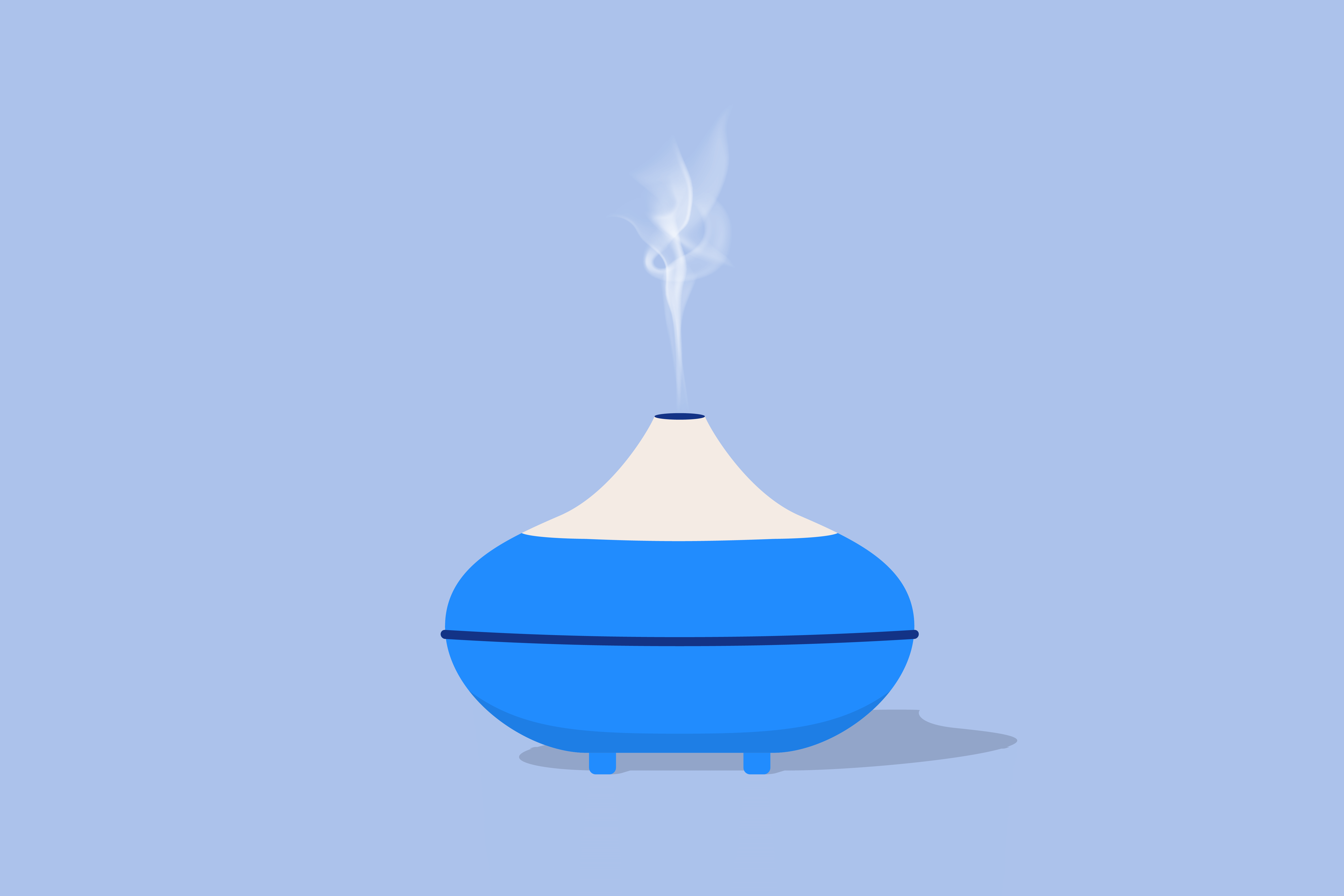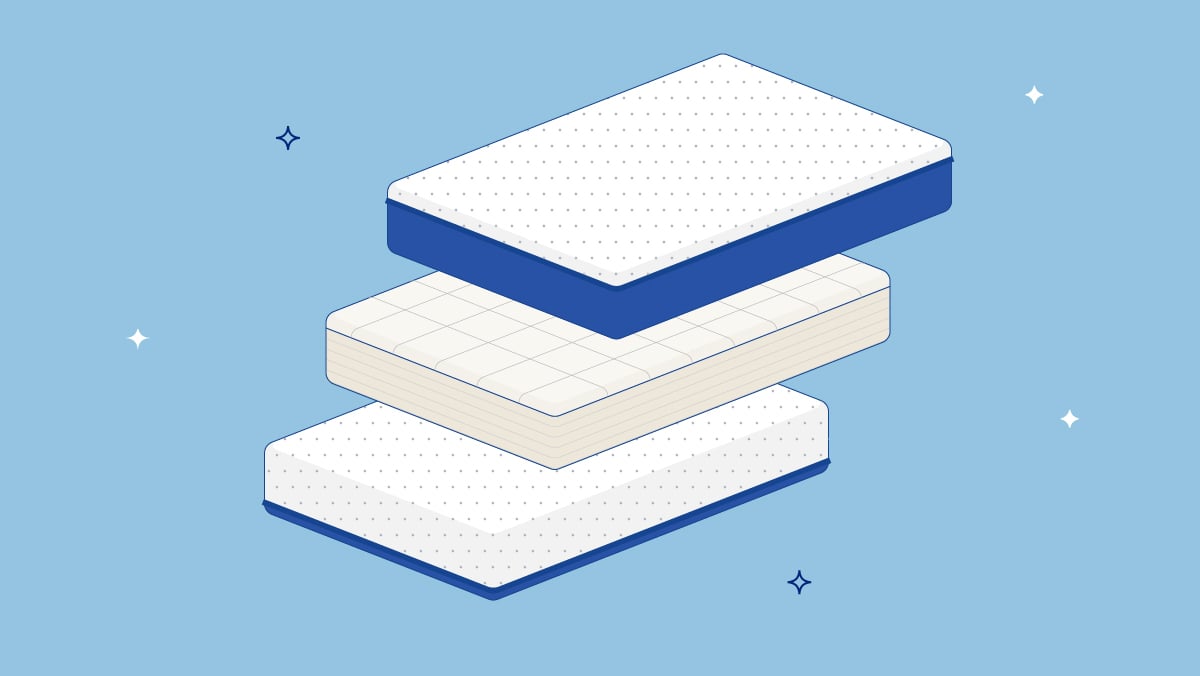Key Takeaways
- Visit Your Doctor: Discuss your sleep issues and symptoms, provide your sleep diary, and ask about conditions that could be affecting your sleep. Your doctor may recommend treatments, adjustments to medications, or a sleep study.
- Optimize Your Sleep Environment: Make your bedroom dark, quiet, cool and comfortable. Limit light and noise, use blackout curtains, a white noise machine, a comfortable mattress, etc.
- Establish Good Sleep Habits: Go to bed and wake up at consistent times, even on weekends. Avoid naps, caffeine, heavy meals and screens before bedtime. Do relaxing activities instead. Getting exercise and sunlight during the day can also help.
When we age, it can become harder for us to get a good night’s sleep. Many of us experience greater trouble falling asleep, we may sleep more lightly, or we may wake more frequently. All of these sleep issues can lead to daytime fatigue, irritability, and mood and memory problems.
One study found that we lose an average of 27 minutes of nightly sleep per decade starting in our early 40s.
As the human body ages, normal biological changes can result in conditions that make sleep less easy to come by, such as slower metabolism, nervous system atrophy, deregulation of body temperature, and other effects. Besides this natural aging process, several other health conditions can make it harder for older adults to sleep. These include dementia, sleep apnea, restless leg syndrome, joint pain, heart and lung conditions, digestive problems, depression, medication side effects, and urinary conditions such as an overactive bladder.
The first step toward addressing sleep problems is to diagnose any conditions that might be interfering with sleep. A discussion with a doctor about sleeping problems can yield insight into any possible medical conditions and potential solutions to them.
These solutions may take the form of prescription medication or supplements; behavioral adjustments to daily habits; the use of apparatus like oral appliances and breathing masks; or treatments like light therapy for sleep or cognitive behavioral therapy, which helps manage stress and emotions.
Next, it can be helpful to look at habits and behaviors that might affect sleep patterns. As with most other physical conditions, the elements of diet, exercise, mental state, and environment all play a role in the success of our sleep efforts. Sustained sleep deprivation can result in irritability, impaired memory, diminished motor skills, greater sensitivity to pain, and increased risk of obesity and other metabolic problems. The good news is that at any time of day, there are plenty of steps we can take toward achieving better sleep at night.
Just because sleep problems are common in aging people, doesn’t mean they’re inevitable. While we can’t necessarily influence or control some biological processes, there are plenty of other factors we can adjust to help us get a better night’s sleep. This guide will look at potential causes and effects of sleeplessness on seniors and suggest numerous strategies that can help.

Medical Concerns That Affect Sleep in Older Adults
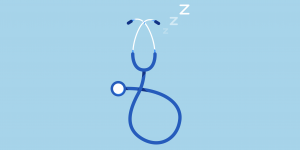 In general,
some National Institute of Health studies
Verified Source
National Library of Medicine (NIH)
World’s largest medical library, making biomedical data and information more accessible.
View source
have found older adults spend less time per night in deep, dreamless sleep, which are periods during which the brain replenishes itself, assimilates information, and stores memories. Those who don’t get enough sleep may suffer from confusion, problems concentrating, distortion of memory, depression, or decreased mental capacity. Long-term insomnia can even affect a person’s ability to react to stress appropriately, which can increase the risk of developing a mental illness.
In general,
some National Institute of Health studies
Verified Source
National Library of Medicine (NIH)
World’s largest medical library, making biomedical data and information more accessible.
View source
have found older adults spend less time per night in deep, dreamless sleep, which are periods during which the brain replenishes itself, assimilates information, and stores memories. Those who don’t get enough sleep may suffer from confusion, problems concentrating, distortion of memory, depression, or decreased mental capacity. Long-term insomnia can even affect a person’s ability to react to stress appropriately, which can increase the risk of developing a mental illness.
A sustained lack of sleep is also associated with a number of physical ailments, such as diminished coordination, reduced muscle strength, endurance, increased wear and tear on the organs, heightened pain sensitivity, disruption of insulin production and sugar metabolism, and an increased risk of diabetes. Possibly the most dangerous physical effect is a weakened immune system, which decreases the body’s defenses against illnesses on all fronts.
In your journey back to better sleep, make your first step a visit to your doctor. Discuss your symptoms and ask them to diagnose any conditions that might be interfering with your sleep. A doctor could find numerous factors are negatively impacting your ability to get solid rest, such as insomnia, sleep apnea, and more.
Insomnia and Hypersomnia
Both a symptom and disorder, insomnia Verified Source National Library of Medicine (NIH) World’s largest medical library, making biomedical data and information more accessible. View source is simply the inability to fall asleep. Existing conditions like depression, anxiety, and dementia can increase a person’s risk of experiencing insomnia.
The flipside of this condition is hypersomnia, Verified Source National Library of Medicine (NIH) World’s largest medical library, making biomedical data and information more accessible. View source which is intense sleepiness and an urge to sleep, especially during daytime hours.
Like insomnia, hypersomnia can be a symptom of something else or a condition of its own.
Snoring and Sleep Apnea
Loud snoring Verified Source National Library of Medicine (NIH) World’s largest medical library, making biomedical data and information more accessible. View source can be a symptom of obstructive sleep apnea and is associated with high blood pressure and other health problems. Sleep apnea Verified Source National Library of Medicine (NIH) World’s largest medical library, making biomedical data and information more accessible. View source is a general condition in which a person’s breathing stops during sleep, resulting in long periods without breath that can cause levels of blood oxygen to drop significantly.There are three different types of apnea: obstructive sleep apnea (OSA), central sleep apnea, and complex sleep apnea. Obstructive sleep apnea occurs when the airway passage relaxes until it collapses shut, obstructing the airway and stopping a person from breathing, sometimes for as long as 10-60 seconds.
With central sleep apnea, the problem occurs instead between the brain and the muscles that control breathing. Complex sleep apnea is a combination of both obstructive and central sleep apnea. Any type of untreated sleep apnea puts a person at risk for headaches, memory loss, depression, and cardiovascular disease, among others.
Restless Leg Syndrome
A neurological disorder also known as Willis-Ekbom disease, restless legs syndrome Verified Source National Library of Medicine (NIH) World’s largest medical library, making biomedical data and information more accessible. View source creates unpleasant sensations in the legs and an accompanying urge to move them to find relief. The urge generally becomes more intense during relaxation and at bedtime, interfering with the ability to fall asleep and ultimately leading to daytime sleepiness and fatigue.
Arthritis, Joint Pain or Muscle Pain
The connection here is pretty straightforward: pain can keep you from sleeping, and poor sleep quality can make your pain worse.
For people with arthritis Verified Source National Library of Medicine (NIH) World’s largest medical library, making biomedical data and information more accessible. View source or other conditions that cause aching, stiff, and sometimes swollen joints, it can seem nearly impossible to get comfortable, doze off, and stay asleep. Studies show that as many as 80% of arthritis patients have trouble sleeping.
Other types of pain can also interfere with sleep, with symptoms ranging from generalized muscle tightness or fatigue to more chronic conditions. Myofascial pain syndrome Verified Source Mayo Clinic Ranked #1 hospital by U.S. News & World Report and one of the most trusted medical institutions in the world. The staff is committed to integrated patient care, education, and research. View source involves mainly muscular pain. Fibromyalgia Verified Source Mayo Clinic Ranked #1 hospital by U.S. News & World Report and one of the most trusted medical institutions in the world. The staff is committed to integrated patient care, education, and research. View source includes more widespread body pain, along with headaches, bowel problems, fatigue, and mood changes. In both of these chronic pain disorders, the pain lasts for long periods of time and can interfere with sleep.
Heart and Lung Conditions
A regular night’s sleep can be interrupted repeatedly by spikes in blood pressure or heart rate. Blood flow throughout the body varies widely during sleep, as does blood vessel elasticity and electrical activity in the heart. People with coronary artery disease or other heart conditions Verified Source Harvard Health Blog run by Harvard Medical School offering in-depth guides to better health and articles on medical breakthroughs. View source sometimes wake up because of central sleep apnea or trouble breathing from fluid buildup in the lungs. Some people wake with angina (chest pain), and others with bouts of atrial fibrillation or palpitations (a racing or pounding heart).
Also, breathing patterns normally become more shallow and less regular during sleep due to reduced brain activity— but reduced pulmonary capacity can make it even more difficult to inhale and exhale optimally at night. Asthma, Verified Source National Library of Medicine (NIH) World’s largest medical library, making biomedical data and information more accessible. View source COPD, or any other lung conditions that obstruct breathing are likely to cause sleep interruptions as the body wakes up and fights to take in more oxygen.
Urinary Conditions
A common cause of sleep loss among older adults is the need to frequently get up and urinate at night. Aging bodies produce less of an anti-diuretic hormone that enables fluid retention, prompting them to produce more urine. Cconcurrently, the bladder can lose holding capacity as we age. Called nocturia, Verified Source National Library of Medicine (NIH) World’s largest medical library, making biomedical data and information more accessible. View source or overactive bladder, this condition is often a symptom of other medical conditions including urological infection, a bladder or prostate tumor, bladder prolapse, or disorders affecting sphincter control. It’s also common in people with sleep apnea, heart failure, liver failure, diabetes, and pregnancy, as well as those taking diuretic medications.
Digestive Problems
During sleep, the digestive system works at a much slower rate than during waking. Digestive tissues also grow, repair, and rebuild themselves at night, using glucose consumed during the day to fuel the rebuilding. If you eat a large meal immediately before going to bed, you deprive the digestive system of its opportunity to rest. This may result in sleep-disrupting symptoms. Any number of digestive problems can make it difficult to sleep, including indigestion, Verified Source Mayo Clinic Ranked #1 hospital by U.S. News & World Report and one of the most trusted medical institutions in the world. The staff is committed to integrated patient care, education, and research. View source heartburn, Verified Source Mayo Clinic Ranked #1 hospital by U.S. News & World Report and one of the most trusted medical institutions in the world. The staff is committed to integrated patient care, education, and research. View source constipation, Verified Source Mayo Clinic Ranked #1 hospital by U.S. News & World Report and one of the most trusted medical institutions in the world. The staff is committed to integrated patient care, education, and research. View source gastroesophageal reflux disease, Verified Source Mayo Clinic Ranked #1 hospital by U.S. News & World Report and one of the most trusted medical institutions in the world. The staff is committed to integrated patient care, education, and research. View source irritable bowel syndrome, Verified Source Mayo Clinic Ranked #1 hospital by U.S. News & World Report and one of the most trusted medical institutions in the world. The staff is committed to integrated patient care, education, and research. View source ulcerative colitis, Verified Source Mayo Clinic Ranked #1 hospital by U.S. News & World Report and one of the most trusted medical institutions in the world. The staff is committed to integrated patient care, education, and research. View source and Chrohn's disease. Verified Source Mayo Clinic Ranked #1 hospital by U.S. News & World Report and one of the most trusted medical institutions in the world. The staff is committed to integrated patient care, education, and research. View source
Allergies
Allergic reactions can manifest in several ways depending on the allergen and how you come into contact with it. The nose and respiratory system will react to an allergen that has been inhaled, such as pollen or chemicals. The skin will react to something allergenic that touches it, as in the case of poison oak, poison ivy, or an insect sting. If you have food allergies, the stomach and digestive system will react negatively to something you’ve eaten; for example, many people are allergic to eggs or peanuts.
Nasal allergies Verified Source National Library of Medicine (NIH) World’s largest medical library, making biomedical data and information more accessible. View source especially can cause breathing problems that result in sleep deprivation. A reaction can be signaled by sneezing, itching, runny nose or nasal congestion, and swelling of the mucous membranes. These conditions can make sleeping impossible when you can’t breathe through your nose and must breathe through your mouth instead. This can lead to snoring and restless sleep. Also, allergies can trigger post-nasal drip, where mucus collects in the throat and causes coughing and often a sore throat. After a night of snoring, coughing, tossing, and turning, you awaken exhausted and irritable.Medication Side Effects
Medications interact with our bodies in ways that are sometimes unpredictable and undesirable. Medicines can disrupt sleep, keep you up all night with insomnia, or cause daytime drowsiness. In fact, sleepiness is one of the most common side effects of medications.
Medications that can affect sleep include:
- Anti-arrhythmics (for heart rhythm problems)
- Antihistamines (for allergy symptoms)
- Beta-blockers (for high blood pressure)
- Bronchodilators (for asthma or COPD)
- Clonidine (for high blood pressure)
- Corticosteroids (for inflammation or asthma)
- Decongestants (for colds and allergies)
- Diuretics (for high blood pressure)
- Cough, cold, and flu medications that contain alcohol
- Headache and pain medications that contain caffeine
- Sedating antihistamines (for colds and allergies)
- Selective serotonin reuptake inhibitors or SSRIs (for depression or anxiety)
- Sympathomimetic stimulants (for attention deficit disorder)
- Theophylline (for asthma)
- Thyroid hormone (for hypothyroidism)
- Tricyclic antidepressants (for depression, bipolar disorder, or chronic pain)
If you believe your medication is affecting your sleep or making you feel drowsy during the day, first discuss the situation with your doctor. They may be able to reduce your dosage, switch you to a different drug, or suggest a different type of treatment. However, don’t stop taking any medication until an alternative treatment has been identified; otherwise, you could experience dangerous side effects.
Consulting Your Doctor
 If you’ve been experiencing symptoms of any of the above conditions or you’ve had trouble falling asleep or sleeping through the night, first schedule an appointment with your doctor. Before you go to the appointment, do some preparation to set yourself up for getting the best results from your visit.
If you’ve been experiencing symptoms of any of the above conditions or you’ve had trouble falling asleep or sleeping through the night, first schedule an appointment with your doctor. Before you go to the appointment, do some preparation to set yourself up for getting the best results from your visit.
There’s a lot to consider and remember during this process, which can be more difficult if you’re sleep-deprived. If you have trouble accomplishing these tasks alone, ask someone for help.
Before the Visit: Sleep Diary
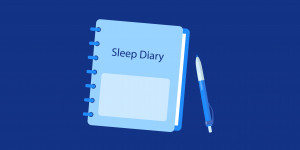 A
sleep diary
Verified Source
National Library of Medicine (NIH)
World’s largest medical library, making biomedical data and information more accessible.
View source
can be a helpful tool in determining factors affecting sleep patterns. In the days and nights before your appointment, use a sleep diary to record your sleep and wake times, sleep disturbances, habits, and feelings for 1-2 weeks.
A
sleep diary
Verified Source
National Library of Medicine (NIH)
World’s largest medical library, making biomedical data and information more accessible.
View source
can be a helpful tool in determining factors affecting sleep patterns. In the days and nights before your appointment, use a sleep diary to record your sleep and wake times, sleep disturbances, habits, and feelings for 1-2 weeks.
Answering these questions can help you draw the clearest picture of your sleep patterns:
- What times do I normally go to bed at night and wake up in the morning?
- Do I have trouble falling asleep at night?
- How many times do I wake up during the night?
- If I wake up, do I have trouble falling back asleep?
- Does my bed partner say (or do I know) that I frequently snore, gasp for air, or stop breathing?
- Does my bed partner say (or do I know) that I kick or thrash around while asleep?
- Have I ever punched, kicked, or screamed while asleep?
- Am I sleepy or tired during much of the day?
- Do I usually take naps during the day? If yes, how many?
- Do I usually doze off without planning to during the day?
- How much sleep do I need to feel alert and function well?
- Am I currently taking any type of medicine or other preparation to help me sleep?
During the Visit: Discussion, Questions and Physical Exam
During your doctor visit, you’ll be asked to provide a medical history, list of current medications, and a description of your sleeping habits via your sleep diary. You should also take the opportunity to discuss with your doctor what you’re going through and ask any questions you’re wondering about. If you have trouble remembering all the things you want to talk about, bring someone with you to help you keep track and to write down notes during the discussion.
Before, during, or after your physical exam, you can ask your doctor questions on these topics:
- What kind of diagnosis do your symptoms indicate
- Side effects of any medications you take— especially any that might affect sleep
- The best time to take the medications prescribed for you
- Whether there’s a possible adjustment of dosage for your current medications
- Other medications you could be switched to
- Other treatments available that don’t disrupt sleep
- Options for treatment of your sleep condition
- Pros and cons of sleeping pills (pharmaceutical medication should be a last resort)
- Whether your doctor thinks a sleep study is indicated
Always try to take the initiative at the end of a doctor visit to restate the major points of your discussion, just to clarify. Then ask what you’re expected to do next, such as make a follow-up appointment, consult a specialist, or pick up prescriptions. Also, find out what your doctor plans to do next with the information they’ve learned.
After the Visit: Sleep Study
If your doctor believes more information is needed, a polysomnogram, or sleep study, Verified Source Mayo Clinic Ranked #1 hospital by U.S. News & World Report and one of the most trusted medical institutions in the world. The staff is committed to integrated patient care, education, and research. View source may be recommended. This usually involves an overnight stay at a sleep disorder unit within a hospital or at a sleep testing facility. The room is usually similar to a hotel room, and you sleep alone while attached to monitoring equipment.
During a sleep test, a technician measures the time it takes you to fall asleep and enter REM, then they observe and record your brain waves during the various stages of sleep you enter. During the night, the study monitors your heart rate, breathing patterns, oxygen saturation in the blood, and heart rate fluctuations. It also records your eye, chest, abdomen, and leg movements, plus any episodes of waking, twitching, seizures, apnea, and any other conditions.
Learn more about what you can expect before and during a sleep study.
Once a sleep study is completed, a copy of the results will be sent to your doctor, who can make further recommendations based on the sleep test and the outcome from your earlier doctor appointment. If you’ve already been diagnosed with a sleep disorder, your polysomnogram results can be used to inform and adjust your treatment plan. You can also request a copy for your own files, in case you want to see a different doctor or specialist who might find the information useful.
Special Considerations for Dementia and Sleep
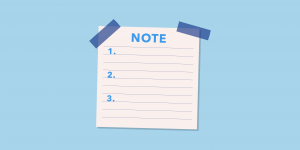 Sleep problems are common for seniors with Alzheimer’s disease and other forms of dementia. However, sleep disruptions are not only common in those with dementia. Healthy seniors also experience lighter and more fragmented sleep as they age, and spend less time spent in deep REM sleep.
Sleep problems are common for seniors with Alzheimer’s disease and other forms of dementia. However, sleep disruptions are not only common in those with dementia. Healthy seniors also experience lighter and more fragmented sleep as they age, and spend less time spent in deep REM sleep.
Nevertheless, brain changes resulting from neurodegenerative diseases often do play a role in many patients’ disturbed sleep patterns. Nighttime awakenings themselves may even be an indication that a person is affected by dementia since mild-to-moderate Alzheimer’s is often linked with insomnia or increased napping.
Conversely, as with many other diseases that exacerbate disordered sleeping, sleep deprivation can worsen the symptoms and cognitive functioning of someone who already has dementia. According to a 2017 NIH study, Verified Source National Library of Medicine (NIH) World’s largest medical library, making biomedical data and information more accessible. View source 60-70% of patients with dementia or cognitive impairments experience poor sleep.
Recognizing Sleep-Related Symptoms of Dementia
In addition to frequent waking, wandering, and confusion in the nighttime, these types of neurodegenerative diseases are also closely associated with depression, daytime sleepiness and sundowning, Verified Source National Library of Medicine (NIH) World’s largest medical library, making biomedical data and information more accessible. View source a phenomenon in which a person exhibits increased confusion and agitation in the early evening, around the time the sun sets.
Problems with the circadian rhythm system, Verified Source National Library of Medicine (NIH) World’s largest medical library, making biomedical data and information more accessible. View source the body’s system for aligning its internal schedule with a standard 24-hour day, also become more common with dementia, resulting in more time awake at night and sleeping during the day. Other variants such as Lewy body dementia Verified Source Mayo Clinic Ranked #1 hospital by U.S. News & World Report and one of the most trusted medical institutions in the world. The staff is committed to integrated patient care, education, and research. View source and Parkinson's disease Verified Source Mayo Clinic Ranked #1 hospital by U.S. News & World Report and one of the most trusted medical institutions in the world. The staff is committed to integrated patient care, education, and research. View source are also associated with REM sleep behavior disorder, which can cause violent movements during sleep. These symptoms can emerge even before substantial cognitive problems signal the presence of the disease.
Diagnosis and Treatment of Sleep Disruptions and Dementia
When sleep problems are being evaluated, especially in elderly people, care should be taken to try to distinguish causes and effects, since many conditions can mimic each other. The more medications a senior takes, the greater the possibility for drug interactions. For instance, dementia may be wrongly attributed to symptoms that are really brought on by depression, malnutrition, or drug interactions.
Prescribing medicines for disrupted sleepers who may also have dementia requires care and attention.
Pharmaceutical intervention, such as sleeping pills, should be a last line of defense once all other options have been proven not to work. Although several sleep medications may have an improved safety profile for those with dementia, any medicines that slow the brain can suppress brain function over time.
Behavioral and Environmental Factors That Affect Sleep in Older Adults
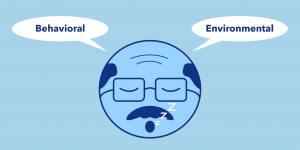 In addition to recognizing and treating any physical maladies that might be affecting your sleep, it also can be helpful to look at your habits and behaviors. Diet, exercise, mental state, and environment all play a large role in the success of our sleep efforts. Therefore, this is often the easiest place to start. There are several adjustments you can make to your daily routine that can give you a better night’s sleep.
In addition to recognizing and treating any physical maladies that might be affecting your sleep, it also can be helpful to look at your habits and behaviors. Diet, exercise, mental state, and environment all play a large role in the success of our sleep efforts. Therefore, this is often the easiest place to start. There are several adjustments you can make to your daily routine that can give you a better night’s sleep.
During the day, it’s important to get enough exercise and limit naps. In the evening, leading up to bedtime, pre-sleep routines can include limiting fluid intake and taking a warm bath. Avoid caffeine and spicy food. At bedtime, try to optimize environmental cues for sleep by lowering lights and noise levels. Calm any racing thoughts by journaling or reading.
During the night, consider your posture and try elevating your head or feet. Also, safety is an important consideration as falls and nighttime wandering can have serious consequences. We’ll take a closer look at each of these factors below.
Consistent Schedule
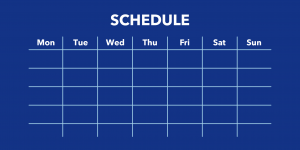 It’s generally recommended that you try to establish a consistent schedule by waking and going to bed at the same time each day. This also includes weekends because, although it may feel good, ultimately there is no advantage to sleeping in on weekends to “treat yourself” or “catch up” on sleep. Also, eating at the same time each day can be helpful.
It’s generally recommended that you try to establish a consistent schedule by waking and going to bed at the same time each day. This also includes weekends because, although it may feel good, ultimately there is no advantage to sleeping in on weekends to “treat yourself” or “catch up” on sleep. Also, eating at the same time each day can be helpful.
During the Day
Daytime habits can affect your nighttime results in a big way. It’s important to engage in healthy practices from the time you get up so that things will be easier at bedtime. Consider doing the following:
- Increase exercise. Verified Source National Library of Medicine (NIH) World’s largest medical library, making biomedical data and information more accessible. View source Getting an adequate amount of exercise each day not only tires out your body, making it more ready for sleep, but it can help regulate your body’s internal clock and temperature.
- Limit naps. Verified Source National Library of Medicine (NIH) World’s largest medical library, making biomedical data and information more accessible. View source The earlier in the day that you can take a nap and the shorter you can make it, the less likely it will be to prevent you from falling and staying asleep that night. Most experts recommend that you nap for no longer than 30 minutes in the daytime and no later than 2 p.m.
- Get some light. Verified Source National Library of Medicine (NIH) World’s largest medical library, making biomedical data and information more accessible. View source Exposing yourself to as much bright, natural light as possible during the daytime can help cue your natural circadian rhythms to keep you awake during the day and let you sleep at night.
Nutrition Tips
The digestive system andsleep cycles are closely tied. So the more healthy your eating habits, the better the chances that you’ll sleep well. Try these techniques to improve sleep and nutrition:
- Eat at consistent times. Verified Source National Library of Medicine (NIH) World’s largest medical library, making biomedical data and information more accessible. View source The more regular your mealtime and digestion processes, the steadier your sleep patterns will be. Remember to never eat within two hours of bedtime, if possible.
- Avoid spicy foods. Verified Source National Library of Medicine (NIH) World’s largest medical library, making biomedical data and information more accessible. View source Foods containing garlic, peppers, and other intense spices can irritate your digestive tract and make it work harder than normal, which signals your body to “stay up and work” instead of resting.
- Limit caffeine intake. Caffeine is a known sleep deterrent, so doctors recommend drinking no more than a cup a day, and only in the early part of the day.
- Try natural remedies. For centuries, a cup of chamomile tea and a warm Epsom salt bath before bedtime have been tried-and-true treatments for sleeplessness. Epsom salts are made of magnesium sulfate, which has been proven to aid relaxation and sleep.
The Pre-Sleep Routine
It’s important that you prepare yourself to get the best night’s sleep possible. This can be done with the implementation of several tips:
- Limit your fluid intake. Although it’s important to stay hydrated, doctors recommend that seniors taper off consumption of liquids as bedtime approaches. Many older adults wake repeatedly in the night to go to the bathroom, which interrupts periods of deep sleep.
- Avoid heavy meals before bedtime. Verified Source National Library of Medicine (NIH) World’s largest medical library, making biomedical data and information more accessible. View source When the body is laboring to digest a heavy meal, it can’t devote that energy to resting and repairing the brain or the rest of the body.
- Turn off electronics. Verified Source National Library of Medicine (NIH) World’s largest medical library, making biomedical data and information more accessible. View source Studies have shown that the blue light emitted by the screens on phones, tablets, and TVs can stimulate the brain and inhibit its melatonin production, making it harder to sleep. It’s recommended to avoid looking at any screens for at least an hour before bed.
- Find relaxing activities. Verified Source National Library of Medicine (NIH) World’s largest medical library, making biomedical data and information more accessible. View source There are numerous techniques that people can use to relax and calm down before bedtime, including a warm bath, or breathing exercises, to name a few.
- Establish a regular bedtime. Verified Source National Library of Medicine (NIH) World’s largest medical library, making biomedical data and information more accessible. View source Try to go to sleep at the same time every night, so that your body falls into a pattern. When the clock reaches that time each night, your body will know it’s time to go to sleep, and it won’t be a struggle.
The Sleeping Environment
Several conditions in your bedroom can affect the quality of your sleep. In general, the bedroom should be dark, quiet, cool, and comfortable to help you get the best sleep possible. Think about these factors and make changes if necessary:
- Limit the light. Verified Source National Library of Medicine (NIH) World’s largest medical library, making biomedical data and information more accessible. View source Complete darkness signals the brain’s pineal gland to produce melatonin, a hormone that helps the body sleep sooner and deeper. Exposure to light while trying to sleep may prevent melatonin levels from rising high enough to let you sleep. Try to limit the number of lights on charging devices inside the bedroom, and consider using blackout curtains to block light from outside. A sleep mask can be a useful way to block out all light.
-
Nix the noise.
Verified Source
National Library of Medicine (NIH)
World’s largest medical library, making biomedical data and information more accessible.
View source
In general, noise is one of the biggest disruptors of sleep, partly because there are so many potential sources of it, from inside and outside the house. Try any or all of these tips to block out ambient sounds that may ruin your bedroom quiet:
- Oil squeaky door and cabinet hinges.
- Add carpet to hard floors.
- Run appliances during the day.
- Seal windows and add insulation.
- Use earplugs if they work for you.
- Regulate temperature, humidity, and airflow. Verified Source ScienceDirect One of the largest hubs for research studies and has published over 12 million different trusted resources. View source The body needs to be within a particular temperature range (typically between 65 and 70 degrees) to fall asleep easily and stay asleep, so the temperature of your bedroom is important. Also, some experts recommend increasing ventilation in the bedroom by opening a window, turning on a fan, and adjusting humidity as needed. Essentially, it all comes down to the sleeper’s comfort.
- Get the best mattress and bedding. A lumpy or sagging mattress can not only keep you from sleeping well but also cause back or joint pain; several factors affect the type of mattress that works best for you. Similarly, the wrong size, shape, or texture of the pillow can cause discomfort and neck or shoulder pain.
- Control any allergens. Verified Source National Library of Medicine (NIH) World’s largest medical library, making biomedical data and information more accessible. View source Allergies can irritate your respiratory tract and keep you from sleeping.
Keep the air in your bedroom free of allergens by following these tips:
- Use an air filter in the bedroom.
- Change your pillow and wash your sheets and other bedding regularly.
- Control humidity levels to prohibit the growth of bacteria and mold.
- Flush your sinuses with saline before bedtime.
During the Night
A few other considerations during the night can improve your sleep hygiene and make it more likely for you to fall and stay asleep.
- Implement sleeping posture tips. Verified Source National Library of Medicine (NIH) World’s largest medical library, making biomedical data and information more accessible. View source Without realizing it, many people sleep in positions that cause discomfort, pain, or obstruction in nerve pathways or airways. If you suffer from sleep apnea, back pain, circulatory problems, or other problems during or resulting from sleep, do some research on how sleeping in a different posture can alleviate your symptoms.
- Snoring remedies. Verified Source National Library of Medicine (NIH) World’s largest medical library, making biomedical data and information more accessible. View source Snoring happens when the structures of the nose and throat airways relax excessively, causing loud noise as air moves in and out. Snoring is extremely common, but it shouldn’t be ignored, as it can disrupt your own or your partner’s sleep. Snoring can also signal possible health problems including obstructive sleep apnea, obesity, or respiratory ailments.
There are several techniques to try that can lessen or eliminate snoring:
- Change sleeping positions.
- Lose weight.
- Use breathing strips, a nasal dilator, or an oral appliance.
- Use a CPAP machine to treat sleep apnea.
- Consider one of several medical treatments to address nasal structural problems.
Tools That Might Help
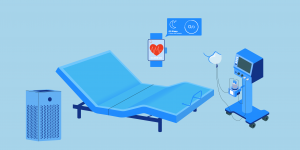 Aside from having the best mattress for seniors and other assorted bedding, older individuals can improve their sleep by taking advantage of various technologies.
Aside from having the best mattress for seniors and other assorted bedding, older individuals can improve their sleep by taking advantage of various technologies.
Several appliances have been invented to help people sleep better, from adjusting the environment and tracking biological patterns, to addressing health problems that prevent sleep.
- Dehumidifier. Too much humidity in a room can make conditions ideal for the growth of bacteria or mold, allergens that can cause breathing problems. Too little humidity can dry out a person’s airways and respiratory membranes, making it hard to breathe comfortably. Machines that adjust the humidity in the air can get the bedroom atmosphere just right.
- CPAP or breathing masks. Verified Source National Library of Medicine (NIH) World’s largest medical library, making biomedical data and information more accessible. View source With sleep apnea, a person’s airways relax to the point of collapse, disrupting breathing for several seconds at a time. A continuous positive airway pressure, or CPAP, machine forces air through the airways at correct intervals to keep the person breathing normally throughout the night.
- Fitness trackers. Verified Source National Library of Medicine (NIH) World’s largest medical library, making biomedical data and information more accessible. View source Monitoring your sleep cycles, patterns, and disruptions can be useful when you’re trying to understand whether you’re getting enough sleep. These can also help cue you at the right times when you’re trying to change habits or construct a healthier sleep schedule.
- Adjustable bed. Verified Source National Library of Medicine (NIH) World’s largest medical library, making biomedical data and information more accessible. View source Knowing that posture and environmental factors affect the quality of sleep, several companies now offer beds that adjust position, firmness, and even temperature to offer the greatest comfort. Sometimes these features adjust one side of the bed independently from the other to accommodate both partners’ differing preferences.
Safety concerns and solutions
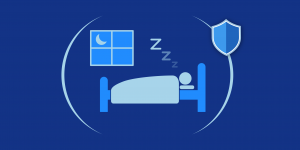 For older people, especially those who are not well-rested, nighttime can be a dangerous time. Difficulty seeing in low light, nighttime disorientation or confusion, and even dementia can make a perilous combination with insomnia, restlessness, or frequent nighttime awakenings. Below are some safety concerns that seniors might face at night:
For older people, especially those who are not well-rested, nighttime can be a dangerous time. Difficulty seeing in low light, nighttime disorientation or confusion, and even dementia can make a perilous combination with insomnia, restlessness, or frequent nighttime awakenings. Below are some safety concerns that seniors might face at night:
- Wandering. Verified Source National Library of Medicine (NIH) World’s largest medical library, making biomedical data and information more accessible. View source The tendency for seniors to wander at night through the house, or outside of it, is associated with several diseases and forms of dementia. Encouraging the senior to get plenty of exercise during the day can help eliminate the urge to wander at night. Installing extra door locks, fences, and/or alarms can help contain seniors to the house. It’s also recommended that seniors wear or carry ID at all times in case these preventive measures fail.
- Falls. Verified Source National Library of Medicine (NIH) World’s largest medical library, making biomedical data and information more accessible. View source It’s a common scenario for an elderly person to get up the middle of the night to go to the bathroom, lose their balance, and fall. Low light can be one culprit in this situation, as well as potentially diminished balance and nighttime disorientation. It can be helpful to install night lights in hallways, bedrooms, and bathrooms, as well as grab bars next to toilets and in showers, accompanied by no-slip mats and rugs.
- Caregiving, assisted living, and nursing home considerations. Verified Source National Library of Medicine (NIH) World’s largest medical library, making biomedical data and information more accessible. View source Concerns like those above are a frequent reason that many family caregivers eventually move an elderly loved one into an assisted living facility or nursing home. Many family caregivers often feel unable to monitor the senior overnight without help. Unfortunately, sleep problems and nighttime safety concerns do not disappear in the facility.
There are more people responsible for managing them, which can, unfortunately, exacerbate them as well. For example, caregiving staff can make noise at night as they prepare supplies for the next day. They can also disrupt a patient’s fragile sleep while monitoring vital signs or administering medication. As much care as possible should be taken to establish and safeguard healthy sleep hygiene for seniors even within an assisted living facility.
Although sleep problems become more common in aging people, you can take steps to help yourself sleep better and fix your sleep schedule. Start by taking stock of your sleep patterns and any disruptions you’re experiencing, then visit your doctor. Together, you and your doctor can assess any conditions that may be affecting your sleep and come up with potential solutions.
Solutions can range from changing your prescriptions to introducing helpful apparatuses, to adjusting your sleep environment and habits. Following the tips in this guide and the advice of your doctor can result in a better night’s shut-eye for you.
Frequently Asked Questions
How does sleep affect aging?
Many recovery processes occur while you’re asleep, so skipping out on needed sleep can cause part of your body to wear out more. Getting a good night’s sleep can also keep your memory and other cognitive processes in top condition, helping you ward off dementia. Lastly, a full night’s sleep lowers your risk of disease and improves your mood.
What time should a senior go to bed?
While there’s no one right bedtime for seniors, we suggest going to sleep at a time that lets them get a full 7 to 9 hours of rest. If a senior has to be up by a certain time in the morning, they can use a sleep calculator to count back and determine what their ideal bedtime should be. For many, that will fall in the 10 p.m. to 12 a.m. range.
What helps seniors sleep better?
Many seniors benefit from some of the standard ways to unwind in the evening. That means a relaxing bedtime routine that includes things like warm baths, relaxing books, a cup of warm milk or herbal tea, and gentle stretches. It’s important to shut off devices an hour or two before bed as the blue light can keep seniors awake.
Seniors can also work toward better sleep during the day with regular exercise. Exercise can improve sleep, though it’s important to avoid being too active close to bedtime. Similarly, it’s important to eat healthy and avoid overindulging in food close to bedtime.
Why do seniors have trouble sleeping?
There are a number of potential reasons that an older individual struggles to sleep at night. They include:
- Medical illnesses
- Side effects of medication
- Psychiatric disorders
- Sleep disorders
- Circadian rhythm shifts
- Bad sleep habits
Developing a good sleep schedule and speaking with a doctor or sleep specialist can help a senior better manage their sleep difficulties.
Why do seniors wake up so early?
Older individuals tend to produce less melatonin, which can lead to various symptoms of insomnia. This can include an early waketime, with an older person unable to simply fall back asleep after waking up.
Seniors also tend to have more fragmented sleep with less time in the deep sleep stages, which can result in an earlier start time.
More Tips to Help Seniors with Sleep Problems
A Place for Mom offers resources for seniors searching for care facilities and assisted living options.It provides extensive information on elder issues, including dementia, insomnia, and other related sleep issues.
Other organizations that study sleep and aging provide in-depth information and tips for sleeping better in advancing age include:
Today’s Geriatric Medicine – Addressing Sleep Challenges
Fosters.com – Dangers of Sleep Deprivation in the Elderly
WebMD.com – Simple Steps Can Combat Sleep Problems in the Elderly
Better Health While Aging – Top 5 Causes of Sleep Problems in Aging, and Proven Ways to Treat Insomnia
About the author
McKenzie Hyde is a Certified Sleep Science Coach and a full-time writer specializing in sleep health and the mattress industry. With a Master of Arts degree in literature and writing from Utah State University, McKenzie combines her passion for writing with her in-depth knowledge of sleep science. Her articles cover a wide range of topics, including best sleep practices for students, the consequences of sleep deprivation, and choosing the right mattress for back pain relief. McKenzie's dedication to delivering accurate and informative content makes her a valuable contributor to the field of sleep health.
View all posts